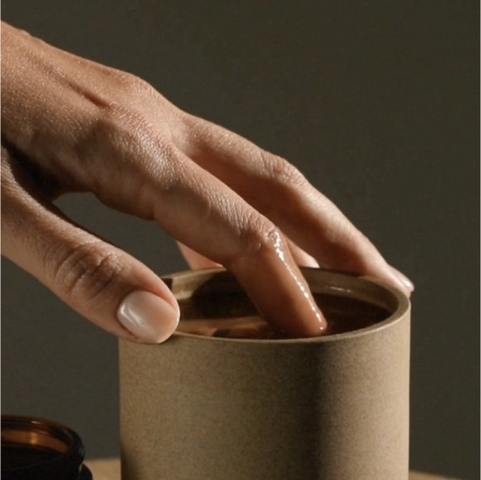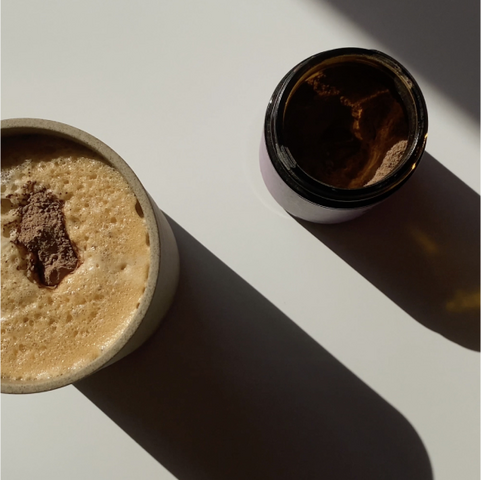Exfoliation is an important step in skin care if you want to clear out pores, polish away dead cells, and resurface smoother skin. After noticing results in your skin’s texture and tone, you might be tempted to repeat the process every day. But can you exfoliate every day, and is it a good idea?
Several factors influence how often you should exfoliate, including skin type, life stage, hydration, and environment. Ahead, we’ll explore what daily exfoliating can mean for your skin and the frequency that’s best for your face.
Can You Exfoliate Everyday?
Exfoliating daily is generally not recommended, as it can disrupt the skin's natural balance. The ideal frequency of exfoliation depends on your skin type and the products used in your skincare routine. For those with rough and flaky skin, gentle daily exfoliation using mild products may be possible and beneficial in enhancing skin texture and reducing dull skin. However, it's crucial to choose gentle exfoliation products, particularly chemical ones, which are often less abrasive than physical scrubs or brushes . These gentler options are less likely to irritate the skin. Most individuals find exfoliating once or twice a week sufficient to maintain healthy skin without causing dryness or irritation.
That being said, even liquid exfoliants can cause drying, inflammation, and redness, especially if overused.
Pro tip: You’ll want to choose a chemical exfoliator that has soothing properties. Acid Potion is a gentle but effective liquid exfoliator that helps unclog pores, resurface skin, and stimulate collagen production. Along with its powerhouse blend of AHAs and BHAs to unglue dead skin cells and unclog pores, it also includes Niacinamide and adaptogenic Reishi to hydrate and restore your skin’s surface while soothing skin irritation.
If you’re new to chemical exfoliation, you may experience purging (accelerated turnover that brings small bumps to the surface). This should resolve within a few weeks, and your skin should look clearer with continued use.
Why You Shouldn't Exfoliate Daily
While you may be able to add gentle exfoliation to your daily skin care routine, you don’t need to, and the risks of daily exfoliation can outweigh the benefits of exfoliating. Why’s that? Your skin barrier is a protective layer at the top of your skin that’s important for keeping skin moisturized, balanced, and protected against toxins and other invaders. When you over-exfoliate the skin, you risk disrupting this natural barrier. By stripping your skin of its natural oils, you leave it exposed and vulnerable to TEWL (transepidermal water loss), which means that the moisture in the layers of your skin can evaporate out.
This could also cause your skin to overcorrect by producing more sebum. When people with acne-prone or oily skin try to banish grease with daily exfoliation, they actually risk making their face greasier as a result of the continued imbalance in their skin’s moisture levels.
You want to avoid that tight, thirsty feeling after you exfoliate and before you follow up with other products. If you feel this every time you use an exfoliating product, you might be doing it too often or using a product that’s too harsh for your skin. However, always follow your exfoliator with something to lock moisture back into your skin, like a hydrating serum and a moisturizing cream with healthy fats to seal in dewiness.
What Will Happen if I Exfoliate Every Day?
If you exfoliate every day, this could cause your face to dry out, and potentially become less dewy, plump, and radiant. You also risk developing skin irritation if you’re using harsh agents and abrasives, and certain scrubs can even cause micro-tears in your skin.
When your skin overproduces sebum as a result of dryness, this could lead to breakouts in your face. Without the protection of your skin’s filmy barrier, you’re more vulnerable to both inflammation from irritating agents and overproduction of sebum, both of which can cause acne.
Recommended Frequency for Exfoliating
With at-home exfoliation treatments, most skin types should be able to handle a once-weekly routine, including sensitive skin, while normal skin to rough skin can likely handle more. Rougher, dull skin may stand up best to exfoliating three times per week. Start with once weekly and feel out what works for your skin.
Other factors to consider
Keep in mind other factors that can affect exfoliation. If you use a retinol or any retinoid treatment, it’s best to alternate those applications to avoid using them on the same day as your chemical exfoliant to avoid product reactions.
If you live in a cold, dry climate, or during winter months, you might want to get your liquid facial in more frequently, while at the beach, you can take it easy. It’s important to note that chemical exfoliants can increase photosensitivity, so always use mineral sunscreen and avoid peel treatments if you’re going to be in the sun.
Acne-prone skin benefits from exfoliation, especially Salicylic Acid since it works inside pores. If you’re dealing with teenage hormones, you may want to focus more on balancing versus resurfacing. Keep skin clean using a gentle cleanser that won’t strip your skin, and exfoliate weekly or as needed. Drink plenty of water to keep your system flushed and eat a balanced diet with plenty of whole, plant foods.
Mature skin needs regular exfoliation. Use Acid Potion 1-3 nights a week or more and follow with a hydrating serum like Plump Jelly and a moisturizer like Cosmic Cream™ for emollient fatty acids to improve elasticity and lines.
The harsher your exfoliant, the more sparingly you should use it. Professional treatments like chemical peels and microdermabrasion should be limited to no more than once a month or at the direction of your dermatologist.
Takeaways
Exfoliation does the dirty work of unclogging skin, releasing dead skin cells, smoothing rough patches, and resurfacing radiant skin. But exfoliating too frequently or too harshly can strip your skin’s natural oils, disrupting your protective skin barrier. If you’re exfoliating sensitive skin, thin skin, dry skin, or skin that’s prone to breakouts, you might want to avoid exfoliating too frequently.
Once a week should be enough for sensitive skin, but if you have normal to rough skin, or in flaky winter months, feel free to increase the frequency up to three times per week.
It’s not needed or recommended to exfoliate every day, but if you do, you’ll want to be sure you’re using a chemical exfoliant with added soothing powers. If you choose the right exfoliating product, it can promote collagen production, soothe dryness, and prime your skin for the next products in your routine.
Sign Up, Nerd Out
Get wellness tips, education, and recipes
delivered straight to your inbox.
Get wellness tips, education,
and recipes delivered
straight to your inbox.
Sources
- US Food and Drug Administration, Alpha Hydroxy Acids https://www.fda.gov/cosmetics/cosmetic-ingredients/alpha-hydroxy-acids
- US Food and Drug Administration, Beta Hydroxy Acids https://www.fda.gov/cosmetics/cosmetic-ingredients/beta-hydroxy-acids
- National Library of Medicine, An antiaging skin care system containing alpha hydroxy acids and vitamins improves the biomechanical parameters of facial skin https://www.ncbi.nlm.nih.gov/pmc/articles/PMC4277239/














